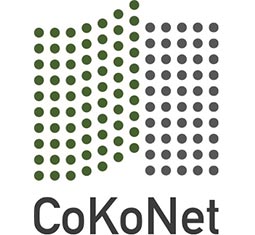March 30, 2020
Everybody for Everybody: IST Austria starts Corona Diary as Citizen Science Project
The Institute of Science and Technology Austria (IST Austria) is initiating an interdisciplinary Citizen Science project to collate and analyze data on social interactions during the Corona crisis.

What consequences will the reduction of social contacts have on our daily lives, now and in the future? This is the question scientists at IST Austria are asking themselves, thus inviting the general public to participate in their research by creating a Corona diary online at cokonet.pages.ist.ac.at.
The world is currently fighting a pandemic that is changing our daily lives significantly. The ultimate goal is to slow down virus transmission. This can primarily be achieved through behavioral changes and social distancing. Or even better: distant socializing with the help of digital media. In addition to the slowing effect the sudden change in behavior has on the spread of the disease, it also affects our professional and personal networks. By means of a survey-based collective diary project called CoKoNet (Corona Contact Network), IST Austria intends to investigate to which extent we are able to, want to or have to substitute various areas of our coexistence with digital contacts, and how this behavioral change will modify our networks beyond the acute crisis.
The project was developed by a team of scientists from IST Austria, including evolutionary biologists, data and computer scientists. With support from the general public, the change in our social interactions over time and across all ages (14+) will be documented in an ongoing digital diary. The aggregated and anonymized data will be evaluated as part of the PhD education at IST Austria and subsequently presented to the public in the frame of the IST Austria Science Communication and Education program.
Developments in recent weeks highlighted the importance of science in assessing and combating the pandemic. However, support through society proved equally crucial: “The current situation can be interpreted as a large experiment that aims to minimize viral transmission through changes in our behavior. It poses a challenge which can only be mastered by society as a whole,” explains IST Austria President Thomas A. Henzinger. Recording behavioral changes could be of advantage when combating pandemics in the future: “As a research institute we do what we do best: collect data, analyze it and make it available for future generations,” says Henzinger.
The current pandemic shows that challenges of this kind can only be overcome through scientific collaboration, today as much as in the future; from medicine to behavioral biology, immunology, data analysis and mathematical simulations of epidemics, to the molecular and structural elucidation of pathogens. At IST Austria several research groups work within these disciplines, including Professor Sylvia Cremer. As behavioral biologist and evolutionary immunologist, Cremer studies how ants fight disease as social insects: “If they come into contact with a pathogen, the directly affected animals as well as those who usually interact with them, minimize social contact with the rest of the colony in an effort to stop the disease from spreading. This social immune response complements each animal’s individual immune system and takes effect before an ant has even been infected. Ants have been doing this for millions of years. At the moment we experience how also human beings can successfully apply this method,” says Cremer.
We invite every citizen to participate in the CoKoNet survey study via the website cokonet.pages.ist.ac.at . The scientists have created a questionnaire which will first of all record the changes we have experienced in our lives over the last few weeks and should then be filled in regularly, preferably twice a week, throughout the duration of the pandemic. In order to minimize the effort all participants have to put into this project, completing the questionnaire is quick and simple. The questions focus on everyday activities in our professional and private life such as social interactions, travel, sports and the changes we now face in these areas. Due to the personal nature of the survey, data protection and privacy are of utmost importance. However, participants can follow their own development in a personal diary. In addition, all anonymous data collected will be used to conduct workshops in schools and as part of IST Austria’s Science Communication and Education program.
Link to the CoKoNet Website: https://cokonet.pages.ist.ac.at/
Watch the corresponding video on YouTube
Message from Thomas A. Henzinger (German only)



